There was a curious beginning to this garden,” says Spanish designer Álvaro Sampedro. “The client called me one summer and said, ‘Álvaro, have you ever made a garden for dogs?’” As garden briefs go, this is a somewhat irregular request, but one that became ingeniously integral to the resulting design. Álvaro rose to the challenge: “I brought the dogs to the client’s empty plot and watched as they were establishing paths; paths to go see the postman, for example, or to deal with other neighbourhood dogs. I then used these paths for the garden layout.” And the result? Designers take note – “Now they don’t touch any flower or plant,” says Álvaro. “I think that was the glue of the garden.” Read more about the Madrid garden below.
In brief
What Private garden fusing formal and naturalistic elements. Where Madrid, Spain. Size 2,400 square metres. Soil Poor clay replaced with free-draining loam. Climate Dry, Mediterranean. Hardiness zone USDA 9.
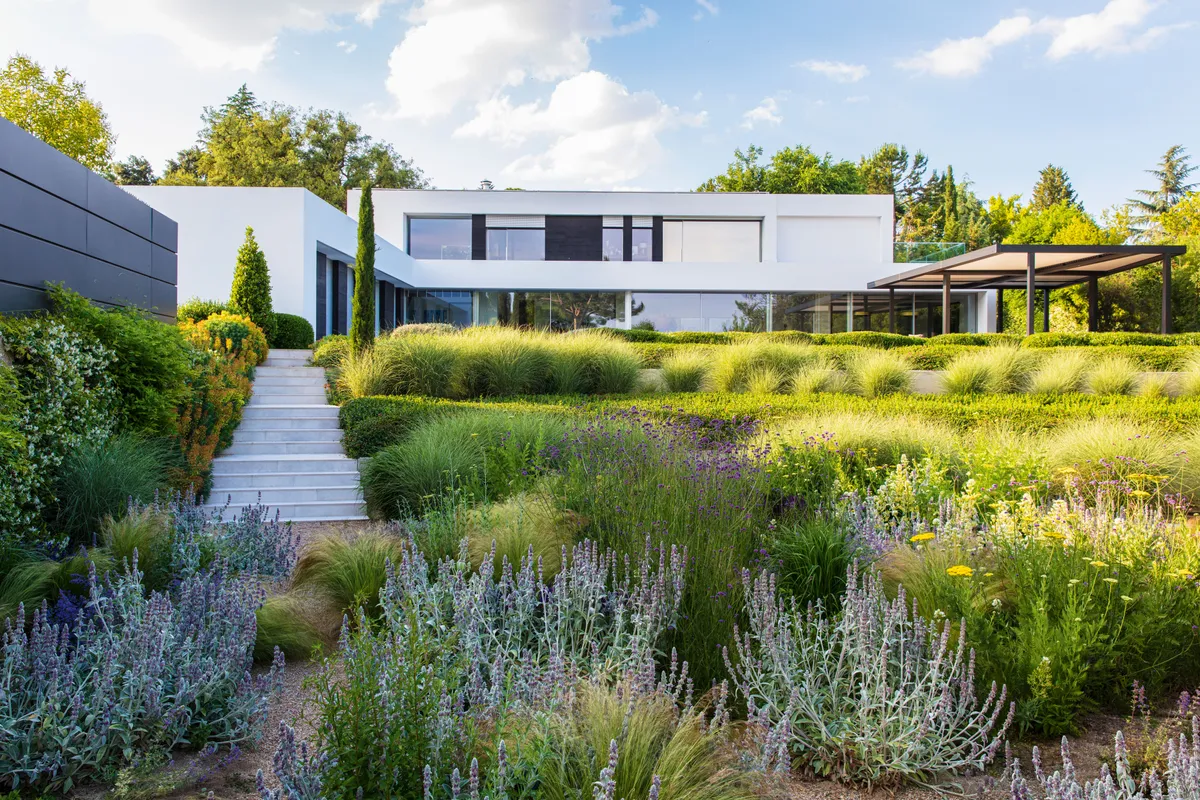
Soft groupings of ornamental grasses and robust drifts of Escallonia rubra var. macrantha retain a level of formality in keeping with the contemporary house, but yield in the foreground to plants that mirror the wider Spanish landscape, such as Stachys byzantina and Achillea filipendulina ‘Parker’s Variety’.
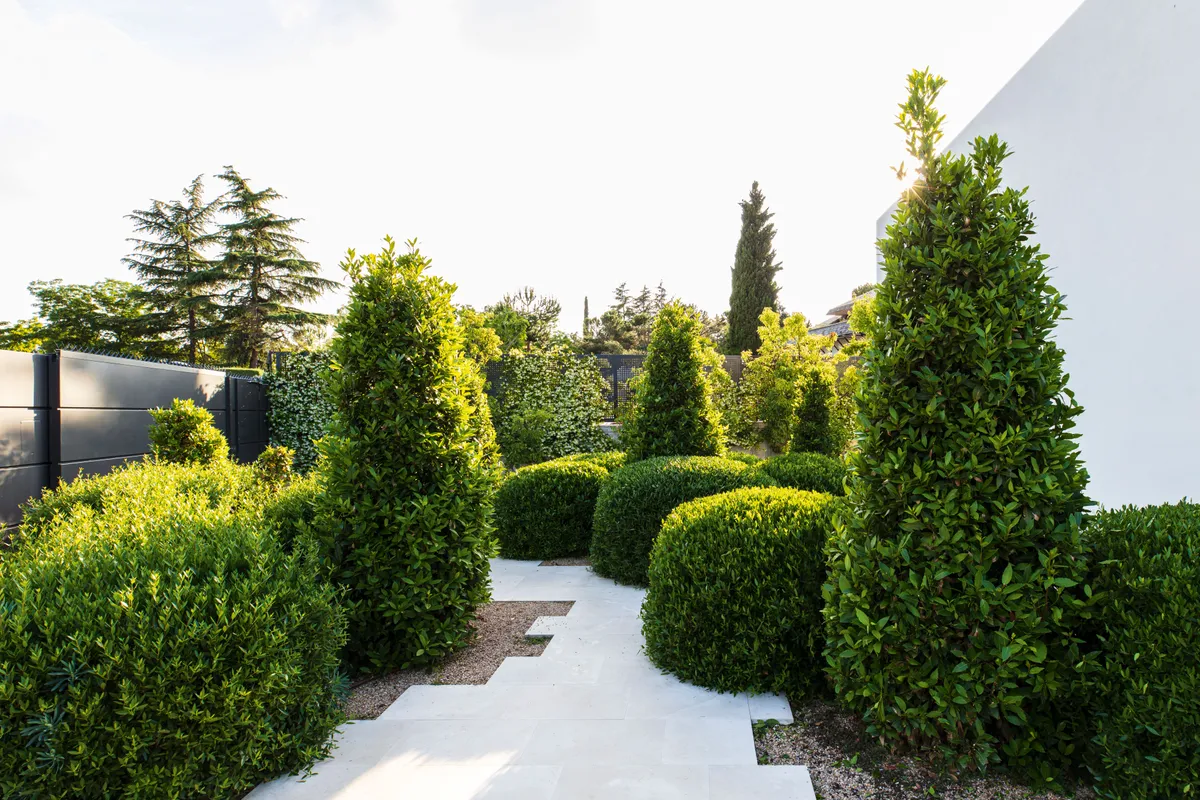
In this more formal area to the side of the house, structural mounds of Phillyrea angustifolia sit comfortably with tall cones of bay (Laurus nobilis), to offer an evergreen structure that remains an attractive fixture through the year. At the far end, a wall of Trachelospermum jasminoides also contributes fragrant flowers in season.
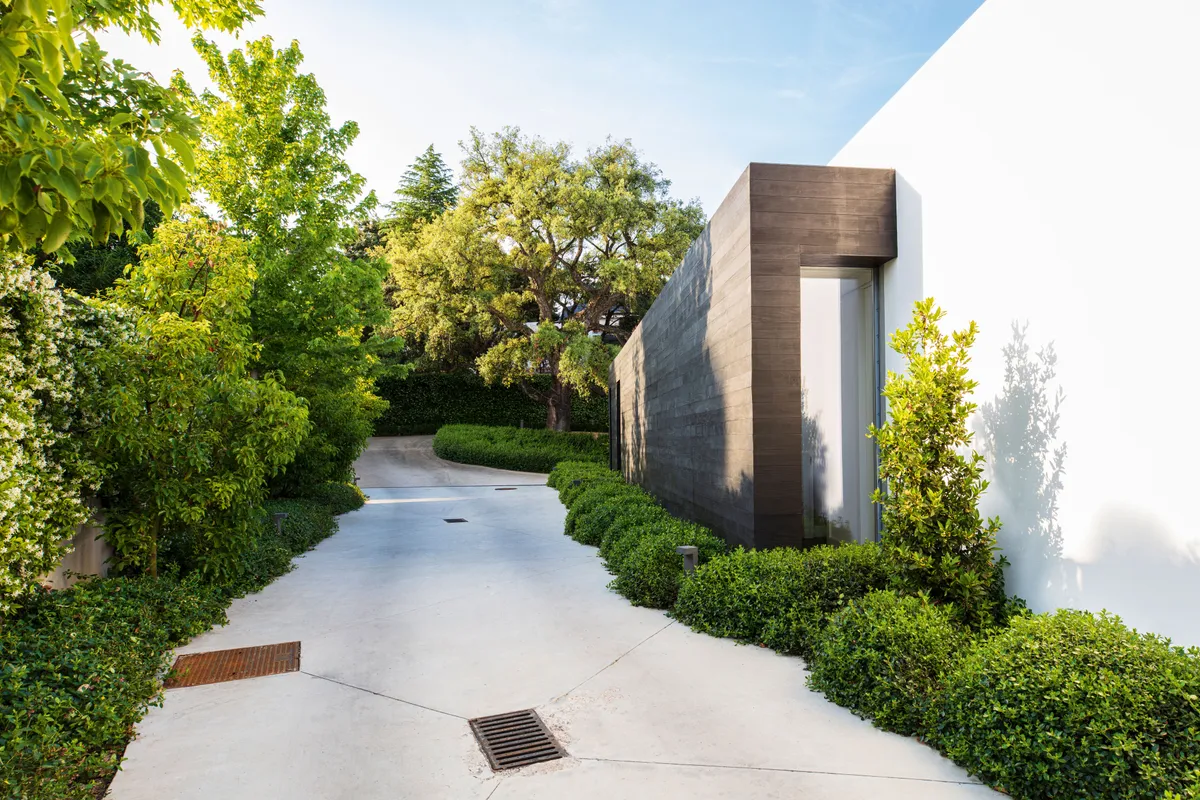
The driveway to this contemporary house curves around a stately cork oak (Quercus suber) retained from the original site. The clean lines of the house are softened by green channels of low, shrubby Escallonia rubra var. macrantha, which contrast against the clean edges of the architecture. The lush green also stands out against the white paving, made of Campaspero, a limestone from central Spain.
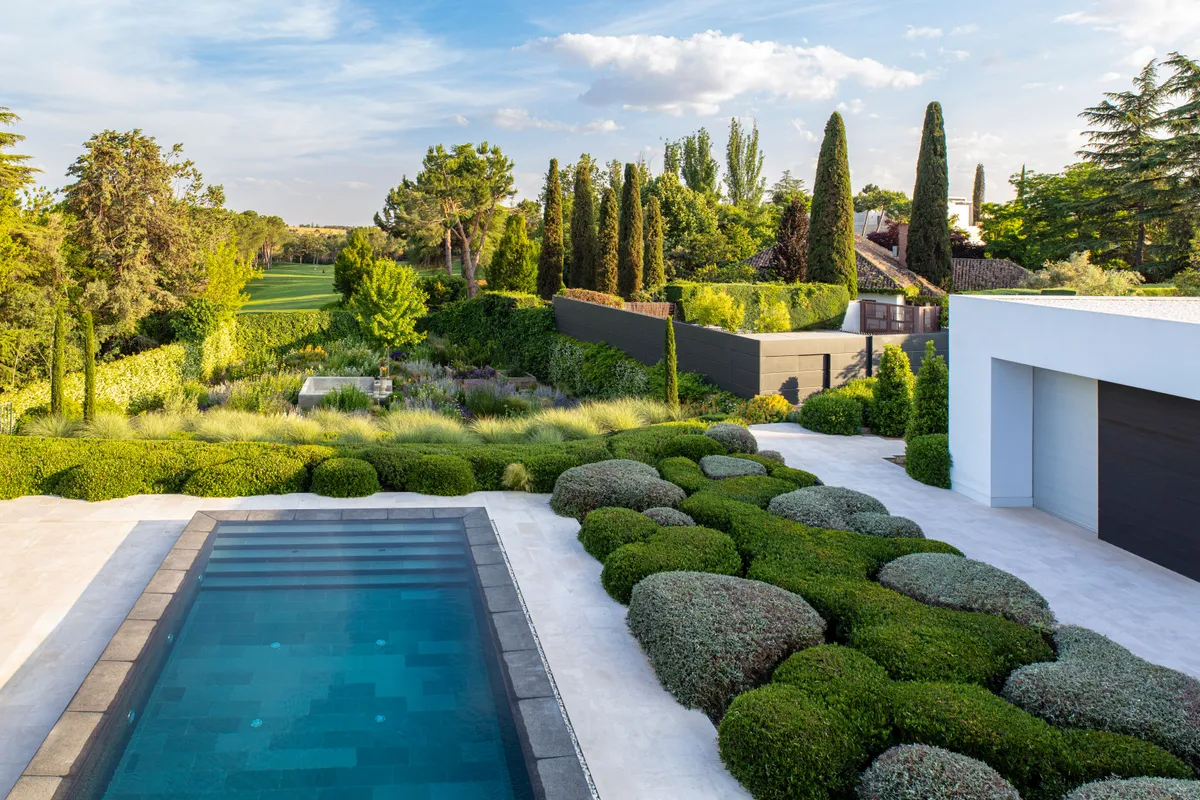
Viewed from the pool terrace, the magic of this clever garden becomes evident. Clipped hedging creates a link from the clean lines of the house to the more natural planting beyond, and trees in the garden help to link the relatively small space to the golf course beyond. Even in small gardens, Álvaro aims to create distinct garden rooms that allow multi-functional use. “In this garden, people could be playing with the dogs, reading by the fire pit, swimming in the pool, and they don’t see or disturb each other.”
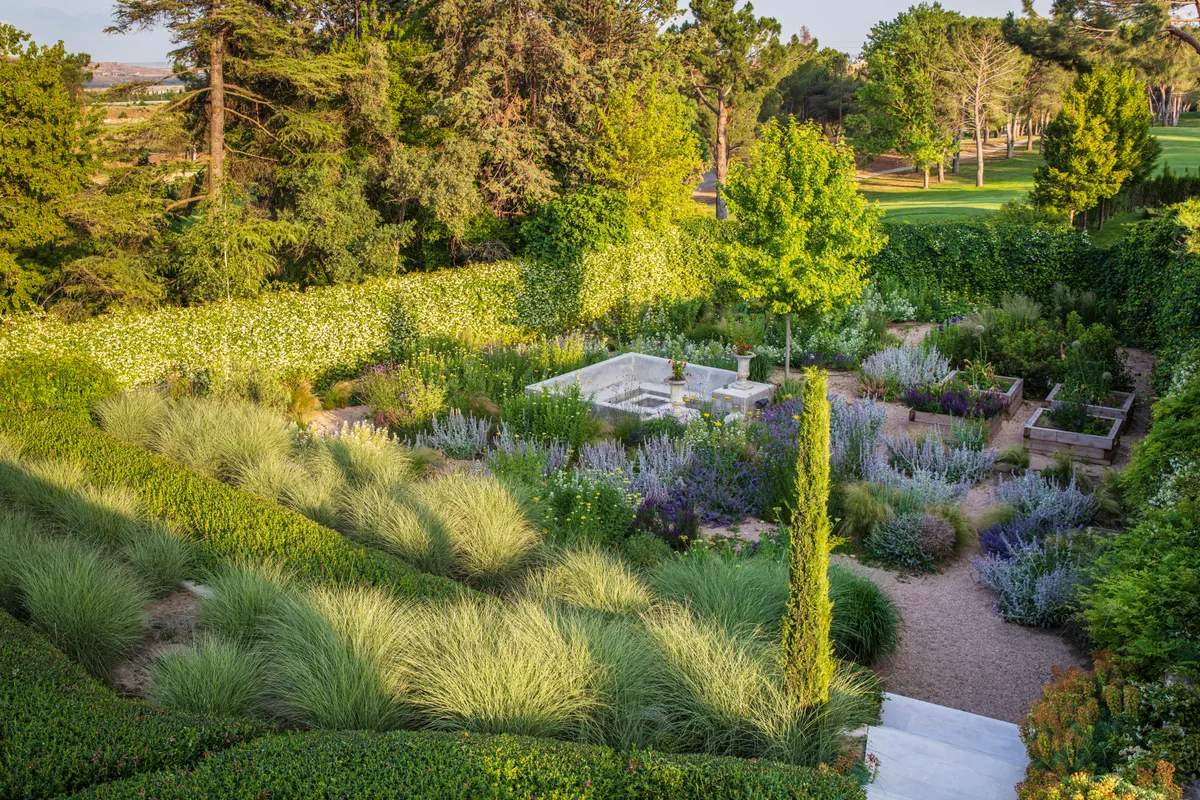
An upright Cupressus sempervirens Stricta Group is used to frame a view of the lower wild garden, where gravel paths bring a sense of tactile connectivity. “There’s something very poetic about the sound
of walking over gravel,” says Álvaro. “It’s a good sensation.”
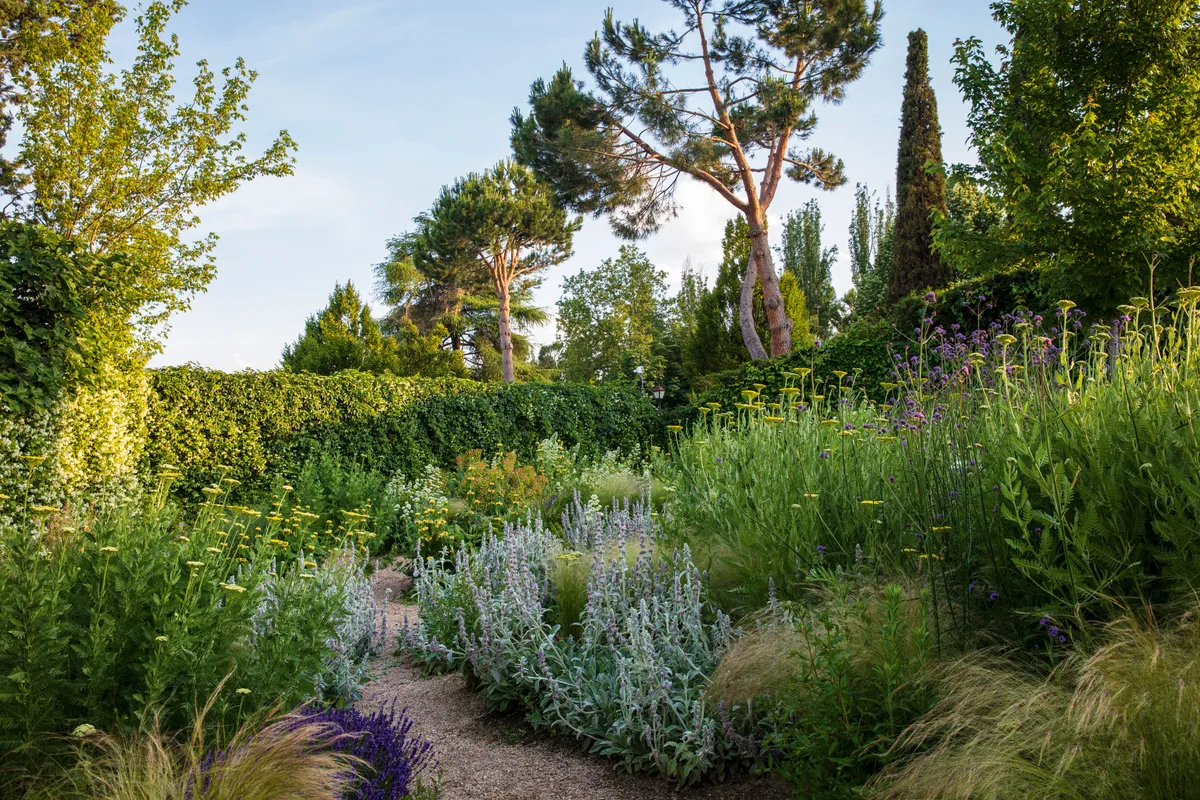
Pine trees from the adjoining golf course contribute to the borrowed view, while a screen of flowering Trachelospermum jasminoides maintains privacy along the garden’s southern boundary. “When I make city
gardens or places with close neighbours, I think about how to block the views first, because privacy is very important.”
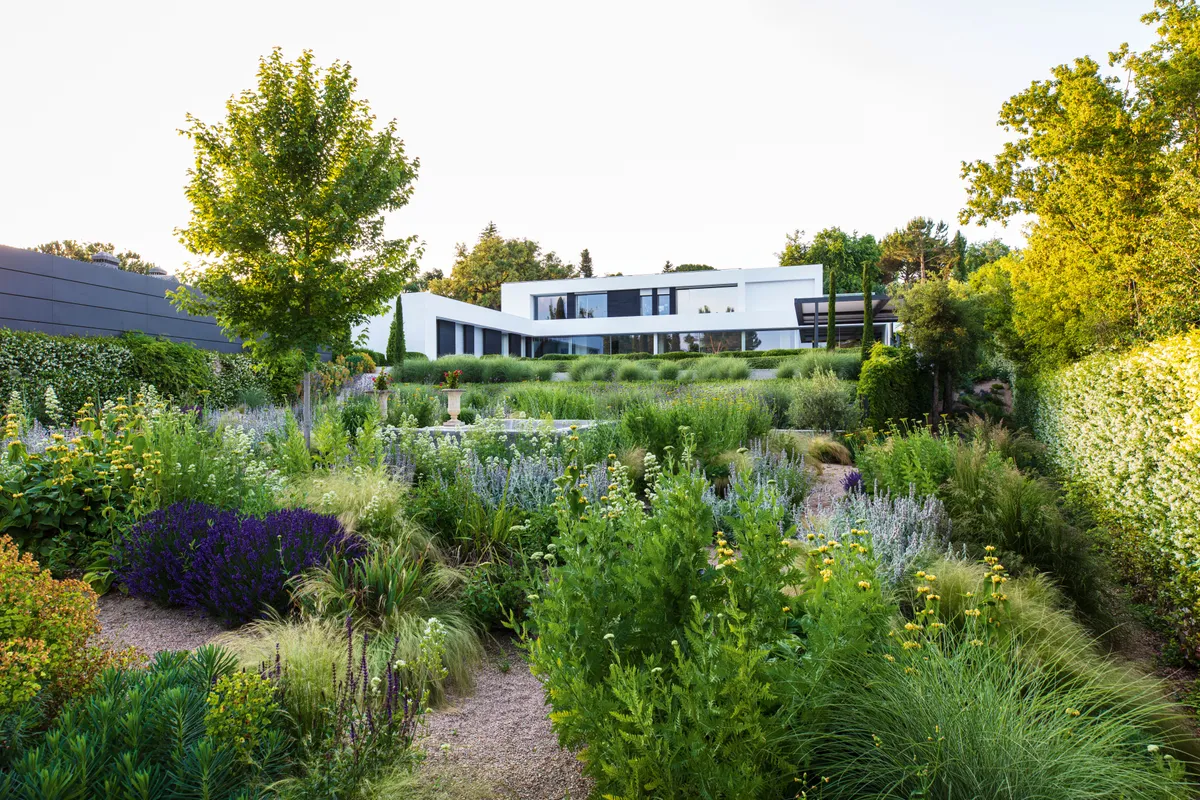
Designer Álvaro Sampedro favours plants well suited to the dry Madrid climate. Here, white valerian (Centranthus ruber ‘Albus’), Salvia nemorosa ‘Caradonna’ and attractive tufts of feathergrass (Stipa tenuissima) thrive in the improved, free-draining soil, demanding little irrigation despite the region’s low annual rainfall.
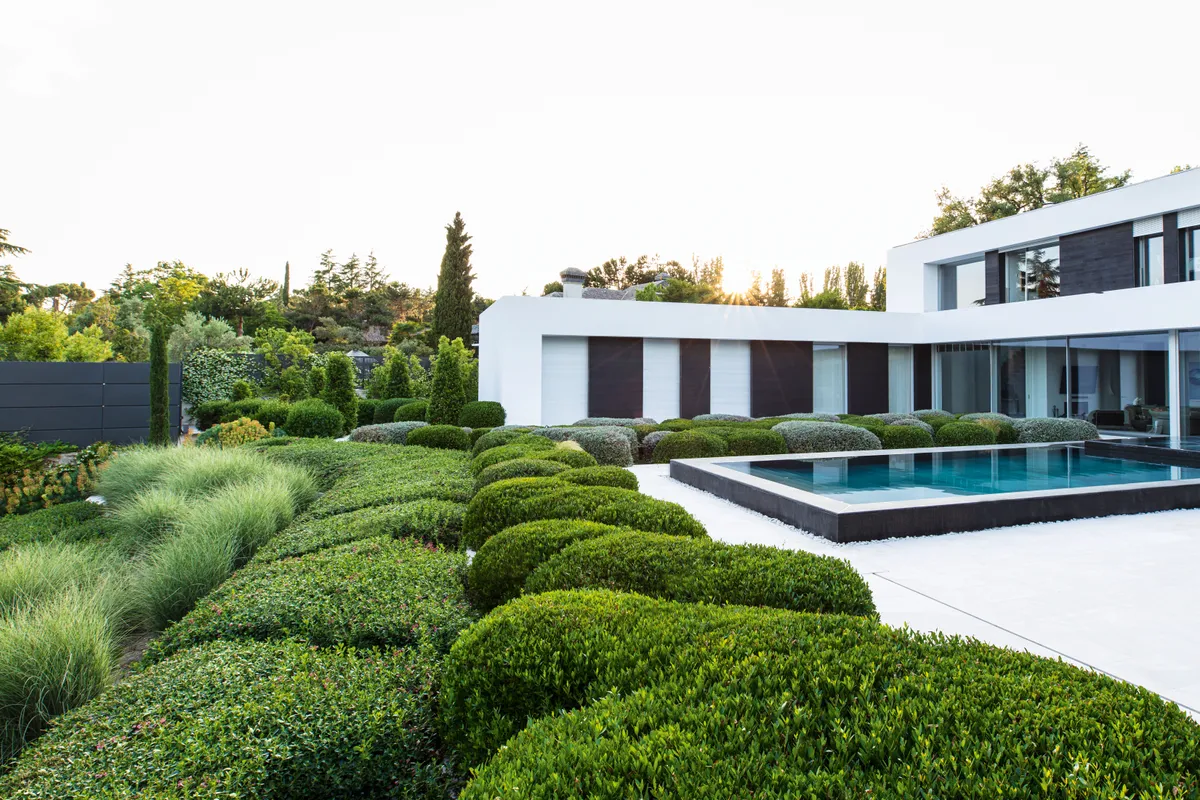
Brushing up against the curvy, clipped hedging that creates a demarcation between the formal and natural garden is the grass Miscanthus sinensis ‘Gracillimus’, which Álvaro uses for its long season of interest. “In early spring, it’s extremely green – something very like mint. Then you have the first flowers; and then the summer yellow; and ochres and browns for winter. It’s amazing.” When the grasses are finally cut back in February, the evergreen hedges hold the space together
Find out more about Álvaro’s work at alvarosampedro.com/en